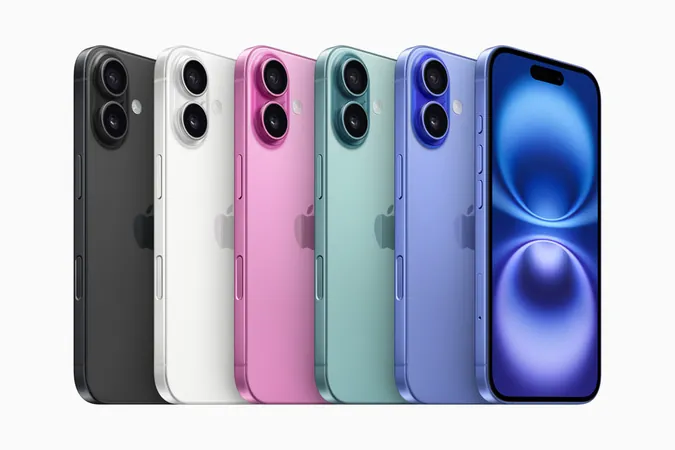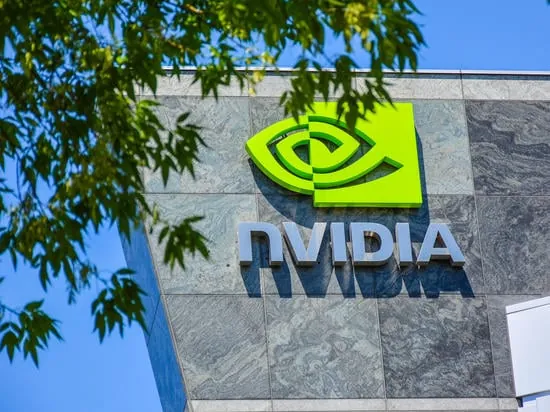
Unlock Lightning Speeds: The New iPhone 16 Sets a High Bar for 5G Performance!
2024-11-19
Author: Jacques
The recently launched iPhone 16 series has emerged as the fastest 5G iPhone to date, according to Ookla, a leading global broadband and mobile performance measurement company. This analysis, based on data collected from September 20 to October 20 across 11 countries, indicates significant advancements in cellular performance compared to previous models and competitors.
The study compares the performance of the iPhone 16, 16 Plus, 16 Pro, and 16 Pro Max to the iPhone 14 and 15 series, as well as Samsung’s latest Galaxy S24 lineup. While these preliminary findings highlight notable speed enhancements, they are particularly relevant as consumers consider holiday upgrades.
Despite the impressive specifications of the iPhone 16 models, pre-sales have reportedly fallen short of expectations. This is attributed to rising costs and a growing trend among users to hold onto their devices longer. Moreover, Apple faces additional challenges, such as the recent trade ban preventing sales of the device in Indonesia due to local manufacturing regulations.
According to Ookla's report, the iPhone 16 series has outperformed all previous Apple models in terms of 5G performance in several key markets, including Canada, France, Taiwan, and the United States. For those living in these regions, the technology certainly presents a compelling case for upgrading—though the decision should consider factors beyond just network capabilities, such as pricing and new features.
Examining the data closely, the iPhone 16 family achieved a “statistically significant” improvement in median 5G download speeds in five out of the eleven analyzed countries. The iPhone 16 delivered impressive median 5G speeds of 324.23 Mbps in the United States alone, surpassing the iPhone 15, which recorded around 245 Mbps, and the Galaxy S24 at about 287 Mbps. All tested devices showed commendable latency, remaining below 53 milliseconds.
However, Samsung’s S24 series excelled in latency and median 5G upload speeds in eight out of the eleven countries, showcasing that competition remains fierce.
In Canada, for example, the flagship iPhone registered speeds approximately 45 Mbps faster than its predecessors, culminating in a top speed of around 182 Mbps. Meanwhile, in India, the new iPhones achieved median speeds exceeding 260 Mbps, with the older models still performing robustly over 230 Mbps. France witnessed the iPhone 16 outperforming older models by nearly 60 Mbps, achieving close to 280 Mbps.
The variations in performance across different countries can largely be attributed to the underlying network infrastructure, the extent of 5G rollout, and specific spectrum allocations.
In summary, the data suggests that Apple's iPhone 16 family has set a remarkable standard for 5G performance. As the holiday season approaches, potential buyers may find this an enticing factor in their upgrade decisions—especially with the promise of faster speeds in a world that increasingly relies on mobile connectivity. Will you join the ranks of users looking for lightning-fast 5G with the iPhone 16? The choice is yours!









 Brasil (PT)
Brasil (PT)
 Canada (EN)
Canada (EN)
 Chile (ES)
Chile (ES)
 España (ES)
España (ES)
 France (FR)
France (FR)
 Hong Kong (EN)
Hong Kong (EN)
 Italia (IT)
Italia (IT)
 日本 (JA)
日本 (JA)
 Magyarország (HU)
Magyarország (HU)
 Norge (NO)
Norge (NO)
 Polska (PL)
Polska (PL)
 Schweiz (DE)
Schweiz (DE)
 Singapore (EN)
Singapore (EN)
 Sverige (SV)
Sverige (SV)
 Suomi (FI)
Suomi (FI)
 Türkiye (TR)
Türkiye (TR)